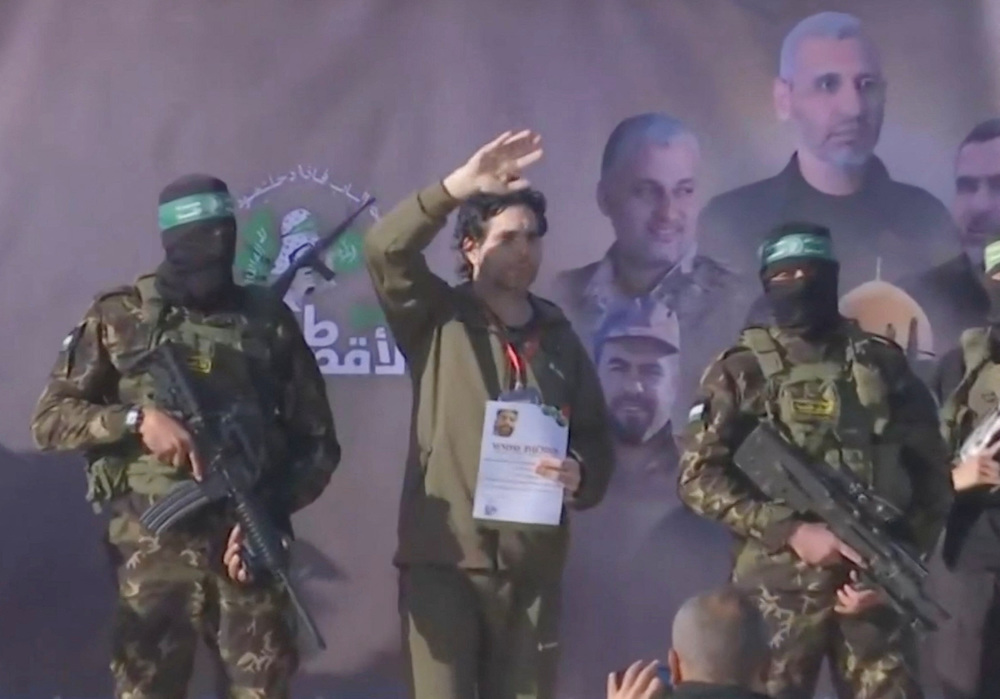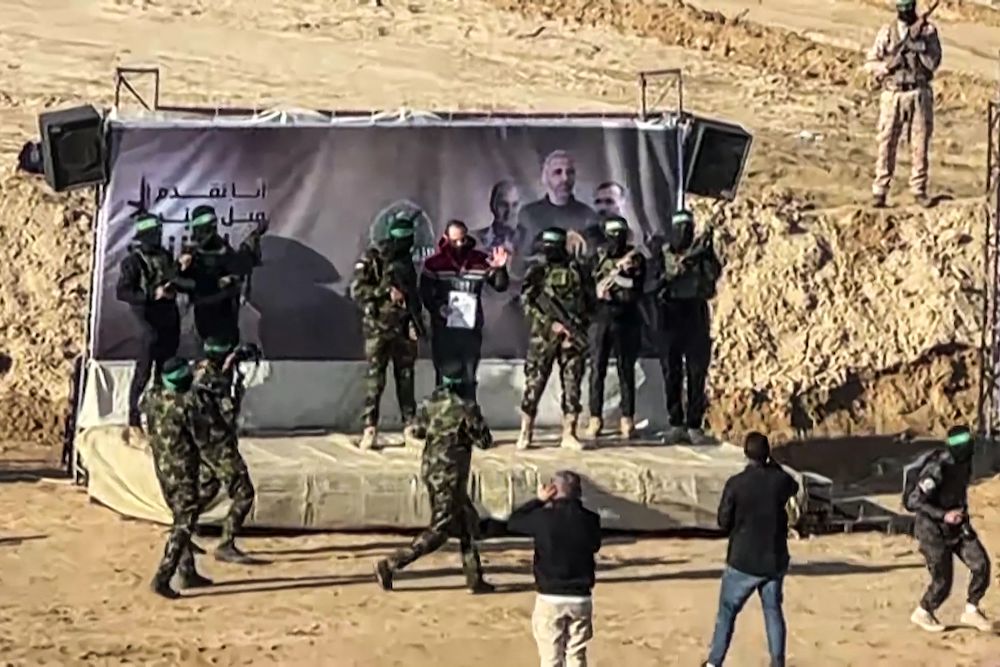NEW YORK: Israelis who were taken hostage or lost loved ones during Hamas’ Oct. 7 attack are suing the United Nations agency that aids Palestinians, claiming it has helped finance the militants by paying agency staffers in US dollars and thereby funneling them to money-changers in Gaza who allegedly give a cut to Hamas.
But the agency, known as UNWRA, told The Associated Press on Tuesday that the staffers were paid in dollars by their own choice. Gaza and the Israeli-occupied West Bank don’t have their own national currency, and primarily use Israeli shekels.
The lawsuit, filed Monday in a US federal court in New York, marks the latest challenge to the beleaguered UN agency, which has been the main supplier of food, water and shelter to civilians during the Israel-Hamas war. The Israeli government has long assailed the over 70-year-old agency, and scrutiny has intensified during the eight-month-long war, prompting UNRWA to defend itself while grappling with a spiraling humanitarian crisis in Gaza.
“UNRWA’s staff, facilities and ability to truck cash US dollars into Gaza formed a potent pillar of Hamas’ plan to undertake the Oct. 7 attack,” the lawsuit says, asserting that the UN agency “systematically and deliberately aided and abetted Hamas and its goals.”
UNRWA Commissioner-General Philippe Lazzarini said Tuesday that he learned of the case only through the media.
“I don’t know what the status of this lawsuit is all about, but for the time being, I see this as an additional way to put pressure on the agency,” he said at a press briefing in Geneva.
UNRWA has denied that it knowingly aids Hamas or any other militant group.
Israel invaded Gaza after Hamas’ Oct. 7 attack, in which militants killed around 1,200 people, mostly civilians, and abducted about 250. The war has killed more than 37,000 Palestinians, according to the Gaza Health Ministry, which doesn’t say how many were civilians or fighters.
The lawsuit was filed on behalf of scores of Israelis including Oct. 7 attack survivors, victims’ relatives, and rescued captives. It echoes some complaints their government has raised, ranging from claims that UNRWA employs Hamas operatives to complaints about the content of textbooks in UNRWA-run schools.
But the suit also focuses on the agency’s practice of paying its 13,000 Gaza staffers in US dollars. The money is wired from a bank in New York and trucked into Gaza, according to the legal complaint, which says the payroll totaled at least $20 million a month from 2018 until last September.
UNRWA employees use local money-changers to convert their dollars to Israeli shekels, the complaint says.
Some Palestinians also use dollars or Jordanian dinars, viewing them as stable and trusted currencies.
The suit claims that Hamas, which has controlled Gaza since 2007, “runs the majority” of the currency exchangers and extracts a 10 percent to 25 percent fee from the rest, “ensuring that a predictable percentage of UNRWA’s payroll went to Hamas” in dollars useful for black-market weapons deals.
“Hamas’ ability to carry out the Oct. 7 attack would have been significantly and possibly fatally weakened without that UNRWA-provided cash,” the complaint says.
The complaint points to an UNRWA-commissioned 2018 report about delivering aid in cash that noted risks of misappropriation, fraud or other diversion away from the intended purpose.
UNRWA spokesperson Juliette Touma said in a message to the AP that Gaza staffers asked that “they are paid in $ because Gaza does not have an official national currency.”
Touma said the UN, including UNRWA, and their officials are immune from lawsuits. She declined to comment further on the suit in question, saying the agency hadn’t officially been served with it.
One of the plaintiffs’ lead lawyers, Gavi Mairone, said in a statement Tuesday that they didn’t believe the UN and officials named in the suit had immunity, “and certainly not from these claims.”
Formally called the UN Relief and Works Agency for Palestinian Refugees in the Near East, UNRWA was established to help the estimated 700,000 Palestinians who fled or were driven out of what is now Israel during the 1948 war surrounding the country’s creation. Their descendants now number nearly 6 million.
The agency operates schools, health clinics, infrastructure projects and aid programs in refugee camps in Gaza, the West Bank, Lebanon, Syria and Jordan.
Since the war began in Gaza, over 1.7 million people have taken shelter in UNRWA facilities. At least 500 displaced people have been killed when such facilities came under attack, according to UNWRA statistics released Friday. The agency has lost nearly 200 staffers.
Two UN officials said Tuesday that the world body warned Israel that Gaza aid operations would be suspended unless protections for humanitarian workers improve.
Israel has accused UNRWA of letting Hamas exploit its aid and facilities, and Israel claimed this winter that a dozen UNRWA employees participated in the Oct. 7 attacks.
The allegations prompted the US and more than a dozen other countries to suspend hundreds of millions of dollars in contributions to the agency, though all but the US and Britain have resumed their funding. Lazzarini said Tuesday that new donors also have come on board, but the agency still faces a year-end shortfall of up to $140 million.
Israelis’ lawsuit says UN agency helps Hamas by paying Gaza staff in dollars
https://arab.news/8mbvc
Israelis’ lawsuit says UN agency helps Hamas by paying Gaza staff in dollars

- The Israeli government has long assailed the over 70-year-old agency, and scrutiny has intensified during the eight-month-long war, prompting UNRWA to defend itself while grappling with a spiraling humanitarian crisis in Gaza



























